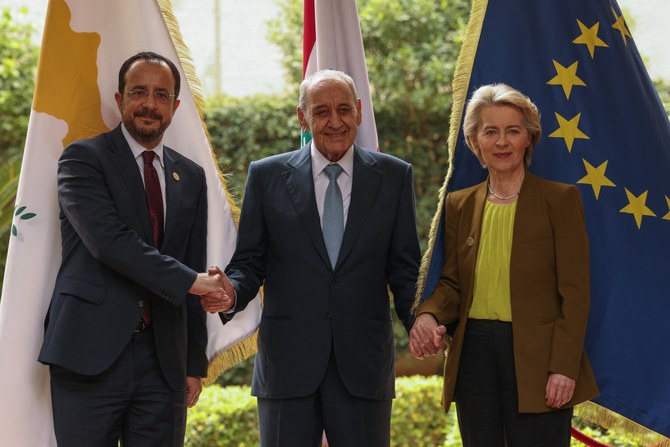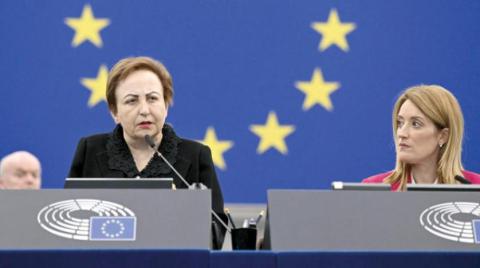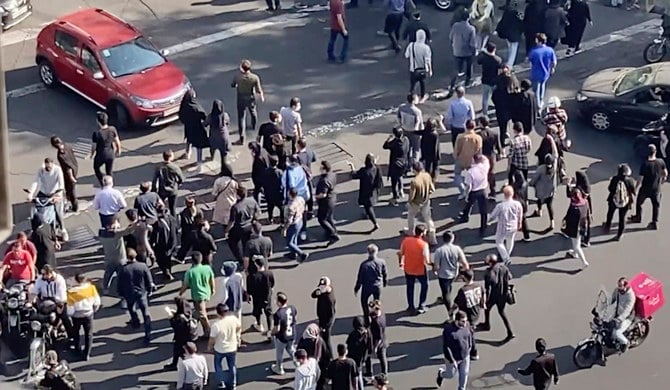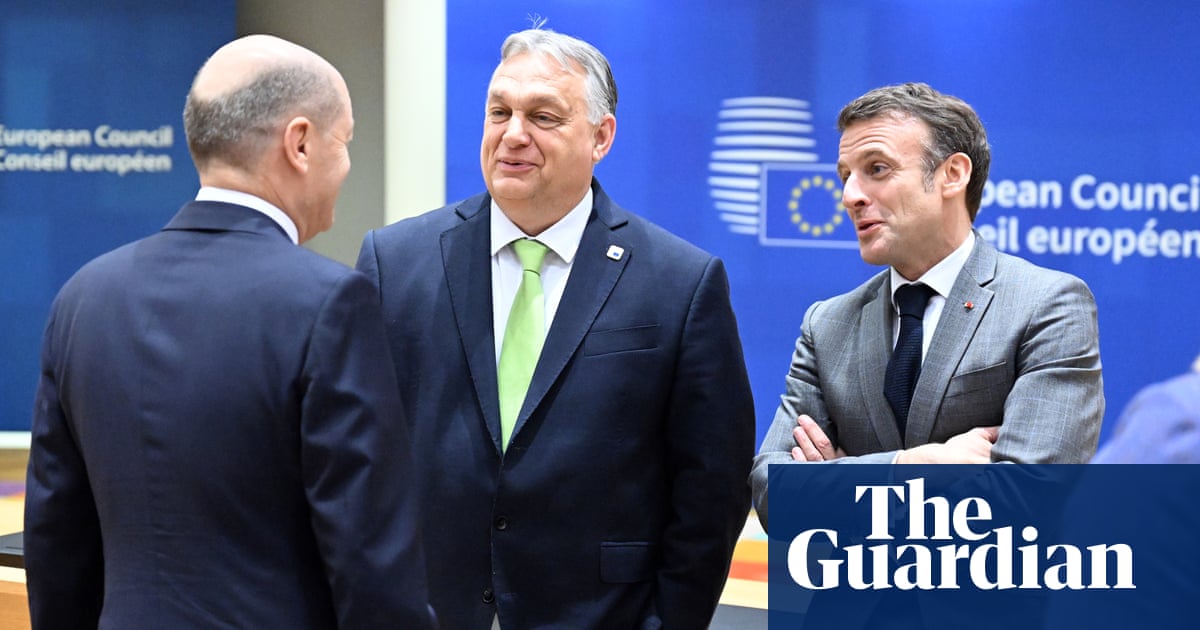
European Commission President Ursula von der Leyen visited Lebanon along with the Cypriot president last week. The EU offered the country a package of €1 billion ($1.08 billion) to be disbursed through 2027. Though the package is supposedly to help Lebanon, it is in fact to buy its leaders’ acquiescence in keeping 1.5 million Syrian refugees in the country.
The Lebanese political class has been very skillful in using the refugee issue to blackmail the international community and extract funds. The political class has its back to the wall. The country defaulted on its debt service in March 2020, meaning it can no longer issue bonds to finance spending. The tax collection system is plagued with inefficiencies. The meager taxes cannot cover government spending. Of course, the political class is not willing to conduct reforms, as it thrives on corruption and clientelism. The only thing left is to blackmail the international community. The Lebanese political class is very good at doing that.
Whenever they need money, these Lebanese leaders start using incitement against refugees. They increase the abusive security measures against refugees, as well as the public rhetoric. The more they squeeze the refugees, the more they try to leave the country. Given that going back to Syria is impossible, the only way out is to cross the Mediterranean. This is a threat to Europe, so the Europeans cave in to the political class and relinquish their demand for reforms in exchange for funds and grants.
However, what the Europeans do not understand is that they are not solving the problem and are actually making it worse by feeding the political class’s predatory behavior. They are opting for the easy way out. The solution they offer is only a temporary one that, in the future, will aggravate the problem. If blackmail works, the political class will use it whenever it needs a new cash injection.
The Europeans are actually making the problem worse by feeding the political class’s predatory behavior
Dr. Dania Koleilat Khatib
By giving the Lebanese political class money, Europe is neither helping the Lebanese nor the Syrians. The Lebanese need the international community to help them get rid of the corrupt political class. But the cash injection will give it a lifeline and allow the political class to avoid conducting reforms. On the other hand, keeping the Syrians in Lebanon is not a solution to the Syrian problem. The solution to the Syrian problem is pressuring the Assad government to make concessions and allow the return of refugees.
So far, Assad has skillfully used his allies in the Lebanese political class to pressure the international community. Jamil Al-Sayyed, a pro-Syrian political figure, attacked the political class for accepting the EU’s money in return for keeping the refugees in Lebanon. He said that, instead of taking the money, the Lebanese government should have pressured the Europeans to mend their relations with Bashar Assad. This is the mantra of the pro-Syrian, or “mumanaa,” political camp. It is using the refugees as a pressure point on the international community on behalf of Assad. It alternates between doing this and using the refugees to milk cash.
Though the Europeans realize they are being blackmailed, the specter of illegal migration looms large. According to the Cypriot Interior Ministry, between Jan. 1 and April 4, 2,140 migrants arrived on the island by boat, as opposed to 78 during the same period in 2023. The vast majority were Syrians who had crossed from Lebanon. If this trend continues, it will create a threat to Europe.
Europe can no longer accommodate new refugees. Europe is inundated with those who have fled Ukraine. To add to the economic burden, there is the cultural aspect of migration. The influx of Syrians in 2015 led to a wave of electoral gains for extreme-right parties. Such migration has even placed a question mark over the European project.
During last week’s visit, Najib Mikati, Lebanon’s caretaker prime minister, reiterated the pro-Assad line by saying that the Syrians fled their country for economic reasons. This is not true, as the refugees mainly left because of the security situation and Assad and his allies’ butchery. The Syrian president is also using refugees as a negotiating card with the international and the Arab communities and has no real intention of allowing them to come back. Even last year’s Arab normalization with Assad did not result in a return of refugees.
Though the Europeans realize they are being blackmailed, the specter of illegal migration looms large
Dr. Dania Koleilat Khatib
The Europeans are putting a sticking plaster on a deep wound that needs surgery. They do not want to tackle the issue of Assad properly and are merely trying to somehow contain the spillover. Faced with his support from Iran and Russia, the international community has been unable to remove Assad. At the same time, the Syrian president is not showing any flexibility — he is not willing to make any concessions in order to be accepted and reintegrated into the international community. As a result, the international community just tries to accommodate the refugees indefinitely without a real plan for their future.
The refugees are a convenient scapegoat for the Lebanese political class. They blame refugees for all the calamities facing the country. They keep hyping up the cost of the refugees to the Lebanese economy. They fail to mention that the allowances refugees get from the UN Refugee Agency pour into the Lebanese economy. They fail to say that the support Lebanon gets for its public schools is driven by Europe, as the international community wants to keep refugee children in schools. Hence, the Lebanese teacher receives a salary because Syrian refugee children are learning in public schools alongside Lebanese students.
There is an agreement that the refugees are weighing down the country and its decaying infrastructure and that Syrian labor is competing with the Lebanese in a limited market amid a financial crisis. However, the Lebanese political elite are not seeking to solve the problem. On the contrary, they want to benefit from it.
Of course, for Europe, immigration is a clear and present danger, but its leaders should recognize that, by caving into the demands of the Lebanese political elite, they are only making themselves prone to more blackmail. Any aid to Lebanon, regardless of the presence of refugees, should be conditioned on tangible reforms.
Dr. Dania Koleilat Khatib is a specialist in US-Arab relations with a focus on lobbying. She is co-founder of the Research Center for Cooperation and Peace Building, a Lebanese nongovernmental organization focused on Track II.












